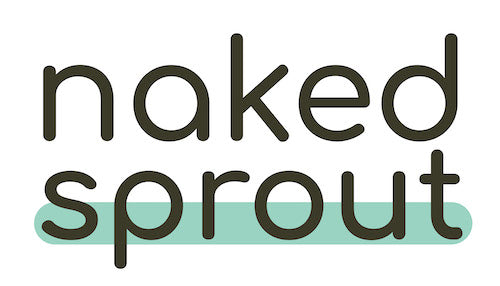Our LCA Part 5: How We Stack Up

We’ve reached the end of the road - the last stage on this tour of our Life Cycle Assessment (LCA). Over the last four posts we’ve counted the total climate cost of making the UK’s most sustainable tissue products.
For our grand finale we’ll show how it all stacks up; how Naked Sprout compares to other eco rolls, what difference this makes to your own climate footprint, and the changes we want to see in our industry.
Taking Stock
If you’re just joining us now, or want a refresher, here’s the story so far.
In 2023 Naked Sprout commissioned our detailed and transparent Life Cycle Assessment. Our assessment takes the same obsessively detailed, cradle-to-grave view of our processes that we do.
We source our raw materials with care, counting the emissions involved in every stage of supply and transportation so that we can improve our process, and our efforts don't stop there. With no fossil fuels used in our manufacturing, our factory generates its own renewable energy onsite. Our rolls travel from our factory to our customers by road, rail, and sea, and we calculate the emissions from every stage. None of our numbers include offsetting.
How does this compare to how things are normally done?

The Bog Standard
We are serious when we say we offer a truly sustainable alternative to other toilet rolls, and we’re not drawing easy comparisons here. If they weren’t buying our rolls most of our customers would choose another eco brand, or recycled rolls made in the UK. So that’s who we compare to, using known facts and published data about the standard processes used to make other eco toilet rolls.
What do these standard processes look like? Here’s what we know about the production methods made by other eco rolls.
Other Eco Rolls
The bamboo rolls sold by other eco brands in the UK are, as far as we know, all made in China. This means higher emissions from transport, as these companies ship finished rolls rather than raw pulp.
And when we look at the wider design priorities and operations of these companies, and of recycled rolls made in the UK, we still see bleach and chemical whitening, unnecessary dyes and wrapping, and a fossil-fuel intensive manufacturing process that may or may not be addressed by offsetting.
If you’ve read this far, you know we set our standards higher.

Looking forward
Back in 2007 Tesco announced they would be adding carbon labelling to all of their own-brand products. Five years later this initiative was dropped, with Tesco explaining that it was a lot of work to calculate these figures, and that other retailers weren’t providing the same information.
We get it. It is a lot of work to calculate your climate footprint, and the numbers don’t mean much if other companies don’t follow suit. Sixteen years after that initial announcement the situation is more urgent than ever, but clear reporting is still hard to find.
But our customers still care, we still care, and so we’re pushing forward. We have been inspired by Oatley’s move to include the CO2e figure for each of their products on their product packaging. We want to see the same thing in tissue manufacturing.
Starting in 2023, we will be printing the CO2e involved in producing Naked Sprout on our boxes.

We are proud to be the first brand of toilet paper to be doing this, and we sincerely hope we won’t be alone for long. When it comes to the environmental impact of the products you use every day, you really shouldn’t have to ask.

Conclusion
And we’re done!
It’s been a whistle-stop tour of forests, furnaces, and forklifts. More than anything we hope this series has demonstrated the amount of thought and care we put into making Naked Sprout.
This is what it takes to make the UK's most sustainable toilet roll. It’s not easy, but it’s not impossible. After three years we feel optimistic about the scale of change that is possible, not only for us but for everyone manufacturing tissue, and manufacturing more generally.
We have no intention of stopping here - that number on the box will keep going down. We’ll be back with an update in 2024!
Want to try Naked Sprout?




